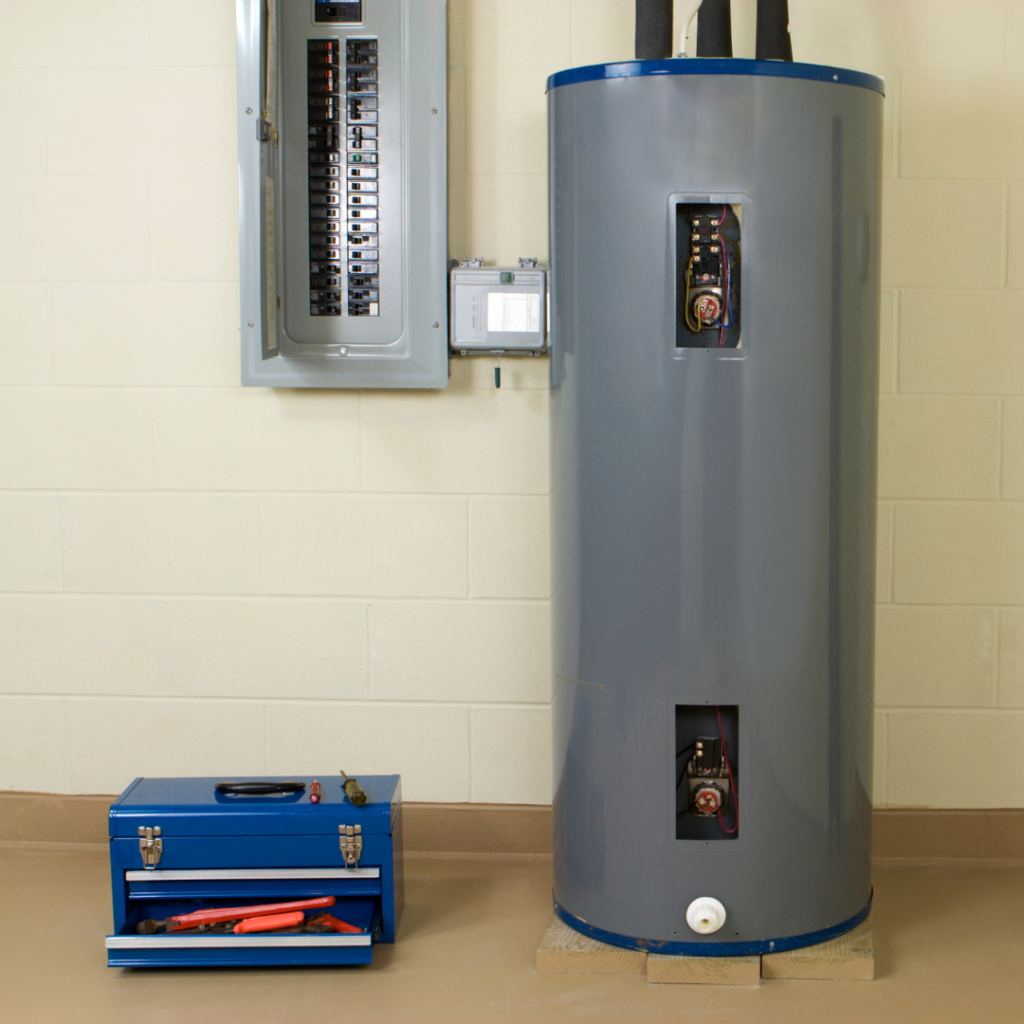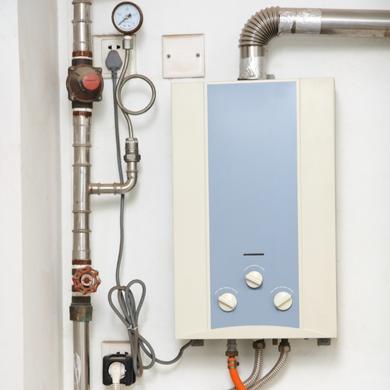Electric Vs Gas Water Heaters
Are you trying to decide between an electric or gas water heater for your home? This important decision can affect your energy bills, the environment, and your family’s comfort. We’ve been at this for over ten years and proudly offer a variety of hot water heaters including gas, electric, tankless and solar. However, the info below focuses on comparing electric and gas heaters. We will discuss the operation, installation, efficiency, environmental impact, costs and energy sources.
Operation and Installation
When you’re looking at water heaters for your home in Surrey, Delta or anywhere nearby, it’s crucial to understand how they operate and what their installation entails. The installation process of a water heater depends on whether it’s electric or gas-powered.
An electric water heater is a tank that heats water using vertically positioned, high-voltage electric heating rods; this requires an adequate power supply and is relatively straightforward to install since all homes have electricity.
However, gas heaters need a safe gas connection to heat water, which can be more complex and require gas-fitter assistance. If your home doesn’t have a gas connection, installing gas connections from the street to the house can be costly.
Both electric and gas-powered water heaters require permits and inspections. We can proudly say our installation process adheres to strict safety regulations in both BC and across Canada to ensure the safety of your Fraser Valley home.
We’re equipped with the expertise and know-how to guide you through these considerations, considering British Columbia’s energy options and climate – helping you make an informed decision about your heating needs.
Efficiency and Environmental Impact
When deciding between a gas and electric water heater, weighing each option’s efficiency and environmental impact is important.
Energy consumption is a significant concern in British Columbia. Gas water heaters typically have higher energy efficiency ratings, leading to lower running costs; if you want to heat your house faster, a gas model heats water more quickly. Still, it still has drawbacks, such as contributing to greenhouse gas emissions.
On the other hand, electric heaters can be powered by renewable energy options like solar or wind power, reducing their environmental footprint. However, their operational efficiency might not match that of gas models.
While environmental regulations push for reduced emissions across all appliances, balancing environmental considerations with your personal needs and available resources is important. At least we think so!

Cost in British Columbia
It’s important to factor in the cost of both initial purchase and ongoing monthly expenses when choosing your heating solution in, especially in BC. In our cost comparison, we’ve discovered the following pros for each option:
Gas water heaters:
- Higher upfront costs but offer long-term savings through lower monthly bills.
Availability and accessibility can be a hurdle if natural gas isn’t readily available.
Electric water heaters:
- Lower initial purchase price but possibly higher ongoing costs.
- Advantageous due to the widespread availability of electricity.
Energy Sources
While electric heaters can be powered by eco-friendly sources, gas heaters can significantly reduce your bills. It’s about striking a balance between short-term expenditures and long-term benefits for your home.
Frequently Asked Questions
What Are the Safety Precautions to Consider When Installing Gas and Electric Water Heaters?
We’re mindful of safety during installation. We consider costs, energy efficiency, environmental impact, and space requirements. Lifespan’s crucial too. Both types need careful handling to prevent accidents and ensure long-lasting, efficient performance in your home.
How Often Should Gas and Electric Water Heaters Be Serviced or Maintained?
We recommend servicing both gas and electric water heaters annually. DIY servicing isn’t advised due to warranty implications and, erm, safety. Maintenance costs vary among service providers, but regular checks can prevent costly repairs in the future.
How Long Do Gas and Electric Water Heaters Typically Last?
We’ve found that gas and electric water heaters can last 10-15 years. However, longevity depends on factors like energy efficiency, initial cost, space requirements, and noise levels.
Are There Specific Brands or Water Heater Models Recommended for Surrey and Delta Homes?
Considering energy efficiency, cost analysis, installation process, environmental impact and long-term reliability is essential in recommending the most suitable models.
What Are the Potential Challenges or Complications That Might Arise During the Installation of Gas and Electric Water Heaters?
We’ve found installation costs, energy efficiency, local regulations, space requirements, and disposal challenges can complicate water heater installation. However, we’re expertly equipped to tackle these potential obstacles.

Conclusion
In conclusion, we’ve found that electric and gas water heaters have pros and cons. Gas heaters may cost more upfront but can save you money in the long run, while electric models are often more eco-friendly and efficient. Ultimately, your choice will depend on your budget, environmental concerns, and energy availability in your home.
Get in touch with us for a free hot water tank estimate. When you choose us, we will thoroughly assess your water heating needs, explain all your options, and provide personalized recommendations for the best system for your Surrey or Delta home.
| Key Takeaway | Electric Water Heaters | Gas Water Heaters |
|---|---|---|
| Operation and Installation | Heats water using electric heating rods. Easier to install since all homes have electricity. Requires an adequate power supply. | Needs a safe gas connection to heat water. More complex installation. Can be costly if a gas connection needs to be established. |
| Efficiency and Environmental Impact | Can be powered by renewable energy sources like solar or wind. Might have lower operational efficiency. | Typically has higher energy efficiency, leading to lower running costs. Contributes to greenhouse gas emissions. |
| Cost in BC | Lower initial purchase price, but possibly higher ongoing costs. | Higher upfront costs but offers long-term savings through lower monthly bills. Availability can be a hurdle. |
| Energy Source | Powered by electricity, which is widely available. Offers flexibility in using renewable energy sources. | Depends on the availability of natural gas, which is generally reliable in the region. Installation can be complex due to the need for a safe gas connection. |
